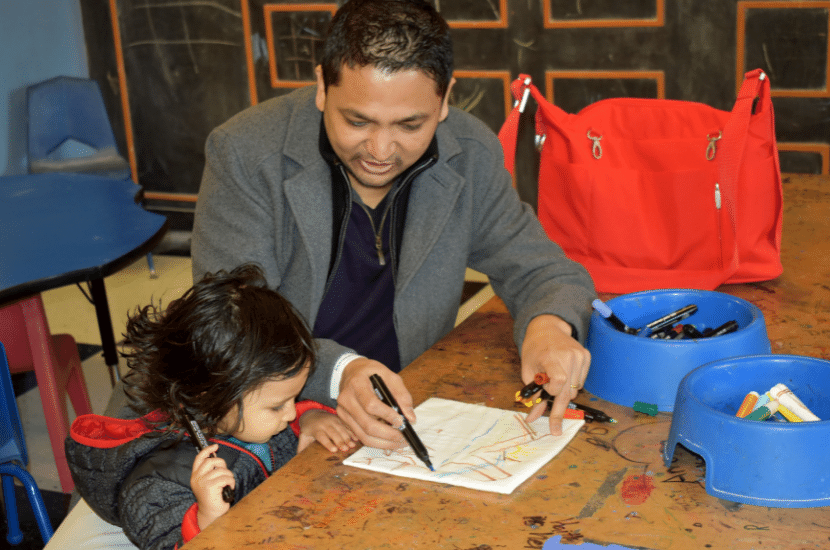
Child development specialists estimate the prime time to prepare children for expressive and mechanical writing occurs between birth to age six. Preparation for the mechanics of writing requires practice of coordination and fine motor movement. To begin preparing children for expressive writing, caregivers and families can provide exploration of phonetic sounds (sounds in a language) and their associations with symbols.
Dr. Maria Montessori’s Sensitive Periods
Through scientific study and observation, Dr. Maria Montessori discovered that from birth to about six years old, children are particularly engaged by specific developmental needs and interests. She referred to these times as sensitive periods. Based on age and development, children are predisposed to learn in bursts. When sensitive periods are satisfied, children build cornerstone characteristics for future success. Dr. Montessori’s sensitive periods align with today’s current standards and you can find evidence of this within the Ages and Stages Questionnaire (ASQ-3).
Sensitive Period Examples
- Coordination of Movement – estimated to occur between birth to five years old
Children are motivated to move. Through freedom of movement, they learn to coordinate large and small muscle actions.
- Language – estimated to occur between birth to 6 years old
Almost immediately, children make sounds, coo and babble to begin the process of acquiring language. As children develop, they are motivated to continue their exploration of language through speaking, writing and reading.
- Sense of Order – estimated to occur between 6 months to 4 years old
In this sensitive period, children enjoy routines, repetition and consistency. In the later stage, they crave opportunities that involve creating external order. From about three to four years old, children seek activities that involve organizing and categorizing objects by color, shape and size.
- Sensory Perception – estimated to occur between birth to four years old
Children are called to experience and understand the world through sensory perception. Through sensory exploration children attain knowledge. Caregivers and families can encourage this kind of learning by stepping back and taking the time to observe.
- Social Understanding – estimated to occur between 2.5 to 6 years old
This is a sensitive period of emotional control. Children are most interested in imitating behaviors. It’s the perfect opportunity to role play. Through modeling, children internalize social skills.
Popular Screening Tool ASQ-3
ASQ-3 is a screening tool, used by many states, including Maryland, to promote growth in five developmental areas:
- Communication
- Gross Motor
- Fine Motor
- Problem Solving
- Personal-Social
By aligning with child development specialists through the ages, caregivers and families can optimize writing preparation opportunities. With this ideal learning window in mind, we can collaborate to introduce children to engaging activities that promote growth in both expressive and mechanical writing.